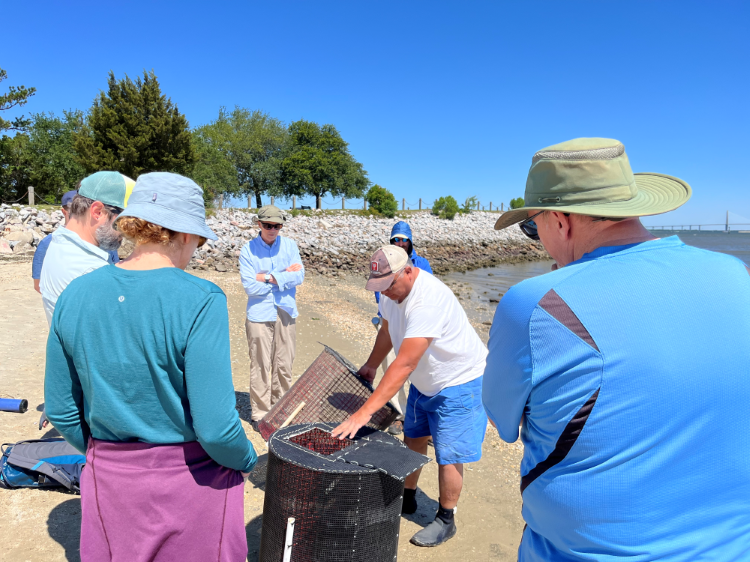
NCCOS’s Ecotoxicology Branch, in partnership with NOAA’s Office of Response and Restoration’s Assessment & Restoration Division (ARD), held a Field Assessment and Support Techniques (FAST) training event with the goal of improving field readiness for spill response and developing capacity with new tools and techniques that will strengthen NOAA’s Natural Resource Damage Assessments.
During the first day of training, ARD staff that conduct field assessments to quantify injury to NOAA trust resources from oil and hazardous materials were introduced to the latest research and capabilities available at the Hollings Marine Laboratory. During the remaining two days, ARD and NCCOS staff, along with academic partners, shared assessment techniques that included in situ exposure and toxicity assessment in habitats ranging from open water to nearshore, an introduction to new water column sensors, and methods for sampling sediment porewater. This training was highly successful in generating new ideas, such as including novel animal enclosures that can be deployed in spill response to measure toxicity, and passive sampling devices to measure chemical concentrations. They also identified priorities for both ARD and NCCOS, such as continuing to develop these new tool sets and testing them in different habitats and environmental conditions, and developing collaborative relationships for future work. The training took place at and around the Hollings Marine Laboratory in Charleston, SC from May 2 to 4.

